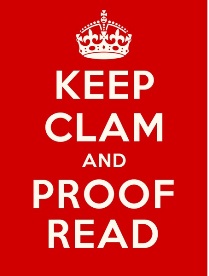In traditional book publishing, once you finish writing your book you find an agent who will submit it to publishers, and then you can wait up to several months to find out whether it has been accepted or rejected. Publishers very often employ “first readers” to go through submissions. If your book has typographical and grammatical errors, odds are…
…it will be rejected. If the first reader thinks your book has merit, you can be assigned an editor who will ensure it is error free.
It’s different in the indie publishing business. Once your book is finished, you can choose to do the proofreading yourself and then go straight to making it available for sale online.
To make sure your book is error free, it is important to hire a professional proofreader to go through your book at least once, preferable twice to find all typographical and grammatical errors. This proofing comes after you have had an editorial service takes its hand to it.
Spellcheckers Are Not Infallible
Most word processing programs have grammar checks these days, but you still can’t guarantee all mistakes will be caught. Spellcheckers are also very useful but have limits. They won’t catch “their” when the text calls for “there” or know that “its” is supposed to be “it’s.” A professional proofreader, on the other hand, will find grammar and spelling errors.
The Effect of Familiarity
When someone has spent months – perhaps years – writing a book, the material becomes extremely familiar. So it’s easy for the author to miss mistakes when s/he re-reads the material for the fifth or sixth time (or more). A professional proofreader comes fresh to the material and is much more likely to catch errors.
When the book is nonfiction, it is also wise to consider hiring a fact checker. If a reader catches a single factual mistake in your book, it will cast doubt on the reliability of the entire work.
So in a nutshell, the formula for arriving at an error free, professional manuscript is:
Editorial Service + Proofreader + Fact checker = Professional
When writing nonfiction, get the help of all three of these professionals; you will be glad you did.
Updated from Original 2013 Post


Familiarity blindness struck a chord with me. I get code blind. After a good few hours working on a particular bit of code you can get blind to any mistakes which means that one comma or semicolon out of place causes a massive man-hunt (and believe you me, that comma feels really sorry once I’ve caught up with it). I can only imagine that working with a manuscript for months or even years would make it really hard to spot the problems. I think I’d probably hate my manuscript after working on it for so long too. Probably just as well that I stick to coding rather than writing!
Having a great go-to proofer is a Must when it comes to books!